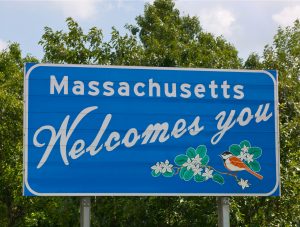 The Massachusetts Supreme Judicial Court held that sales tax applied to subscription fees for three online Citrix products, “GoToMyPC,” “GoToAssist” and “GoToMeeting,” which allow users to remotely access other users’ computers. Citrix Systems, Inc. v. Comm’r of Revenue, No. SJC-12741 (Mass. Feb. 5, 2020). In so holding, the Court affirmed the Massachusetts Appellate Tax Board’s determination that Citrix made taxable sales of tangible personal property, rather than nontaxable sales of services.
The Massachusetts Supreme Judicial Court held that sales tax applied to subscription fees for three online Citrix products, “GoToMyPC,” “GoToAssist” and “GoToMeeting,” which allow users to remotely access other users’ computers. Citrix Systems, Inc. v. Comm’r of Revenue, No. SJC-12741 (Mass. Feb. 5, 2020). In so holding, the Court affirmed the Massachusetts Appellate Tax Board’s determination that Citrix made taxable sales of tangible personal property, rather than nontaxable sales of services.
Articles Posted in Issues
Illinois Taxpayers Score Rare TIA Win in Property Tax Dispute
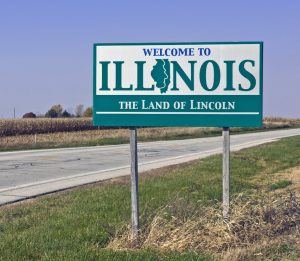 On January 29, 2020, the U.S. Court of Appeals for the Seventh Circuit held the Tax Injunction Act did not bar a federal lawsuit challenging property tax assessments on equal protection grounds because the taxpayers that brought the suit did not have a plain, speedy and efficient remedy in the Illinois state courts.
On January 29, 2020, the U.S. Court of Appeals for the Seventh Circuit held the Tax Injunction Act did not bar a federal lawsuit challenging property tax assessments on equal protection grounds because the taxpayers that brought the suit did not have a plain, speedy and efficient remedy in the Illinois state courts.
No Dealer Here: Walmart Walks Away with Big Marketplace Facilitator Win in Creole State
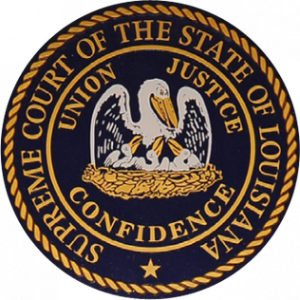 On January 29, 2020, the Louisiana Supreme Court issued a 4-3 decision in Normand v. Wal-Mart.com USA, reversing in full two lower courts and holding Walmart.com was not required to collect local sales tax on third-party sales facilitated through its online marketplace. The majority concluded Walmart.com was not a “dealer” under Louisiana law for purposes of such sales and the company’s contracts with third-party marketplace retailers did not transfer the third-party retailers’ sales tax obligation to Walmart.com.
On January 29, 2020, the Louisiana Supreme Court issued a 4-3 decision in Normand v. Wal-Mart.com USA, reversing in full two lower courts and holding Walmart.com was not required to collect local sales tax on third-party sales facilitated through its online marketplace. The majority concluded Walmart.com was not a “dealer” under Louisiana law for purposes of such sales and the company’s contracts with third-party marketplace retailers did not transfer the third-party retailers’ sales tax obligation to Walmart.com.
Solicitor General Argument Likely Dooms Arizona Tax Case at High Court
(This article originally was published by Law360 on January 16, 2020.)
The saga continues in Arizona v. California, Arizona’s U.S. Supreme Court challenge of California’s tax reach, but signs are strong it may be ending soon.
Last year, Arizona filed a motion to the court seeking to file a complaint against California under the court’s original and exclusive jurisdiction over controversies between states.1 Arizona contends California assesses and enforces its doing business tax (i.e., an $800 annual and minimum tax imposed on businesses doing business in the state) so expansively that it unconstitutionally “reaches out-of-state companies that do not conduct any actual business in California, and indeed have no connection to the state except for purely passive investment in California companies.”2
Washington Denies “Human Effort” Exclusion to Online Research Service
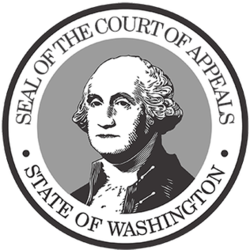 The Washington Court of Appeals held that Gartner, Inc.’s online research service was a digital automated service subject to the state’s retail sales tax and retailing Business and Occupation (B&O) Tax. Gartner, Inc. v. Washington Department of Revenue, No. 51637-3-II (Wash. App. Div. 2 Jan. 13, 2020). This decision addressed the scope of Washington’s “human effort” exclusion from the retail sales tax, the applicability of the “bundled transaction” and “true object” tests to offerings that contain taxable and nontaxable components, and the Internet Tax Freedom Act.
The Washington Court of Appeals held that Gartner, Inc.’s online research service was a digital automated service subject to the state’s retail sales tax and retailing Business and Occupation (B&O) Tax. Gartner, Inc. v. Washington Department of Revenue, No. 51637-3-II (Wash. App. Div. 2 Jan. 13, 2020). This decision addressed the scope of Washington’s “human effort” exclusion from the retail sales tax, the applicability of the “bundled transaction” and “true object” tests to offerings that contain taxable and nontaxable components, and the Internet Tax Freedom Act.
Oregon Releases First Set of Draft CAT Rules
The Oregon Department of Revenue (DOR) has just released a series of eight draft administrative rules for Oregon’s new Corporate Activity Tax (CAT) that go into effect on January 1, 2020. In “The CAT is Almost Out of the Bag! Oregon Releases First Set of Draft CAT Rules,” SALT team members Carley Roberts, Robert P. Merten III and Afshin Michael Khazaeli examine the rules themselves, what this may mean for companies calculating commercial activity, and more.
Navigating Local Labyrinths: Practitioners’ Guide to Local Taxes
In this article, Carley Roberts and co-authors discuss some of the more significant locally imposed taxes that could cause unexpected issues for businesses entering a new jurisdiction. They highlight Chicago Personal Property Lease Transaction Tax, San Francisco local taxes, New York City commercial rent tax, New Jersey local property tax, Jersey City payroll tax, New Jersey income tax credits, and Tennessee business tax.
To read the article, please click here.
TEI Silicon Valley Chapter’s State & Local Tax Day & IPT Joint Meeting
![]() Pillsbury SALT was proud to present TEI/IPT Silicon Valley’s State and Local Tax Day & IPT Joint Meeting on December 5! The team presented a 3/4-day seminar that focused on topics related to the State and Local Tax implications of the Tax Cuts and Jobs Act, the U.S. Supreme Court’s decision in Wayfair, and other hot topics in state and local taxation.
Pillsbury SALT was proud to present TEI/IPT Silicon Valley’s State and Local Tax Day & IPT Joint Meeting on December 5! The team presented a 3/4-day seminar that focused on topics related to the State and Local Tax implications of the Tax Cuts and Jobs Act, the U.S. Supreme Court’s decision in Wayfair, and other hot topics in state and local taxation.
TEI New York Chapter’s 56th Annual Tax Symposium
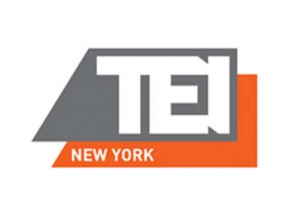 Tax Executives Institute’s New York Chapter presents its 56th Annual Tax Symposium on December 12! The Symposium offers three concurrent technical tax sessions for Federal, State and Local and International Taxes with a wide range of important topics and great speakers. The State and Local Tax session will feature a New York Update Session with Michael Schmidt, New York State Commissioner – Department of Taxation and Finance and Deborah Liebman, Deputy Counsel, New York State DTF. In addition, acting Director, Division of Taxation, John Ficara will be joining for a New Jersey Tax Reform 2019 Edition discussion.
Tax Executives Institute’s New York Chapter presents its 56th Annual Tax Symposium on December 12! The Symposium offers three concurrent technical tax sessions for Federal, State and Local and International Taxes with a wide range of important topics and great speakers. The State and Local Tax session will feature a New York Update Session with Michael Schmidt, New York State Commissioner – Department of Taxation and Finance and Deborah Liebman, Deputy Counsel, New York State DTF. In addition, acting Director, Division of Taxation, John Ficara will be joining for a New Jersey Tax Reform 2019 Edition discussion.
One of our Pillsbury SALT partners will present “The State of State and Local Tax: Developments and Trends” as a part of the State and Local Tax session from 4:00pm-5:00pm ET.
For more information and to register, please visit the event page.
“Interactive” Website Will Defeat P.L. 86-272 Immunity If the MTC Has Its Way
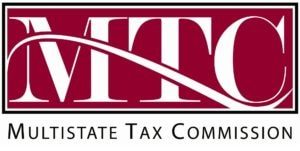 The Multistate Tax Commission (MTC) is updating its Public Law 86-272 guidance, “Statement of Information Concerning Practices of Multistate Tax Commission and Signatory States under Public Law 86-272,” to address internet activities. This guidance was last updated in 2001. The latest draft guidance, dated October 15, 2019, provides examples of when the use of an “interactive” website will defeat P.L. 86-272 immunity, even if the company has no other contact with the customer’s state. Such examples include:
The Multistate Tax Commission (MTC) is updating its Public Law 86-272 guidance, “Statement of Information Concerning Practices of Multistate Tax Commission and Signatory States under Public Law 86-272,” to address internet activities. This guidance was last updated in 2001. The latest draft guidance, dated October 15, 2019, provides examples of when the use of an “interactive” website will defeat P.L. 86-272 immunity, even if the company has no other contact with the customer’s state. Such examples include:
- providing post-sale assistance to customers via either electronic chat or email accessed through a website link;
- soliciting and receiving online applications for branded credit cards;
- inviting viewers to apply for employment;
- contracting with a marketplace facilitator, whose marketplace offers for sale the company’s products via a website and maintains the company’s inventory;
- inserting internet “cookies” into the computers or other electronic devices of customers; or
- remotely fixing products via the internet and WiFi.
Having one of the listed internet activities—by itself—would cause a company that has limited its in-state activities to solicitation of sales to lose its P.L. 86-272 immunity according to the draft guidance. In effect, the MTC’s draft guidance would eviscerate P.L. 86-272 protection given today’s digital economy.
The October 15, 2019, draft “Statement of Information Concerning Practices of Multistate Tax Commission and Signatory States under Public Law 86-272” can be accessed here. More information can be found on the MTC’s web page.
 SeeSALT Blog
SeeSALT Blog

